During my time at the Heritage Harvest Festival at Monticello, I took a few classes. It was more like I ran around like a chicken with my head cut off, trying to gather as much information as possible from the abundance of classes on offer. In two days, I learned 3 ways to grow your own sweet potato slips, how to process seeds for home-grown oil, how to use every part of okra, and I heard an inspiring talk about African-American heirloom culinary history. Whew! Here’s an armchair run-down on these fascinating topics:
Edible Oil Processing – with Chris Smith
Chris Smith is a man after my own heart. He, too, wants to be prepared for the zombie apocalypse, and he ponders where our oils (for heating, cooking, and taste) come from. If everything comes to a screeching halt, he and I both want to have access to fresh oil, not the highly processed and rancid oils that most grocery stores sell. Self-reliance is the key.
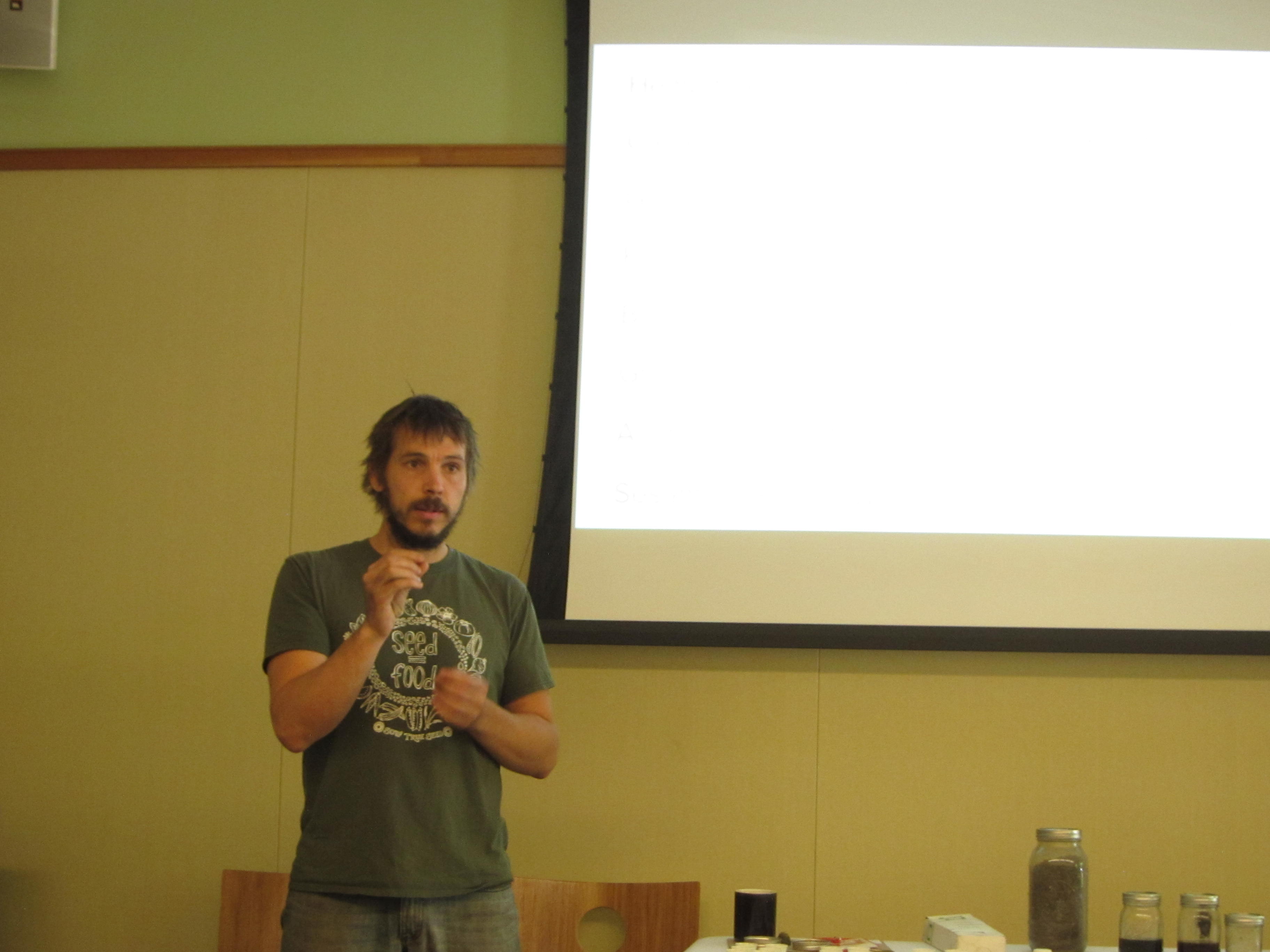
Chris shared which seeds can be processed easily into oil, and what equipment is best to use. He also explored the idea that through edible oil processing we can participate in the local food movement. It also uses what might otherwise be thrown away or composted. We sampled freshly pressed oils and tasted seed “press cakes” (what’s left after pressing). Press cakes are food for livestock (and even dogs), so nothing goes to waste.
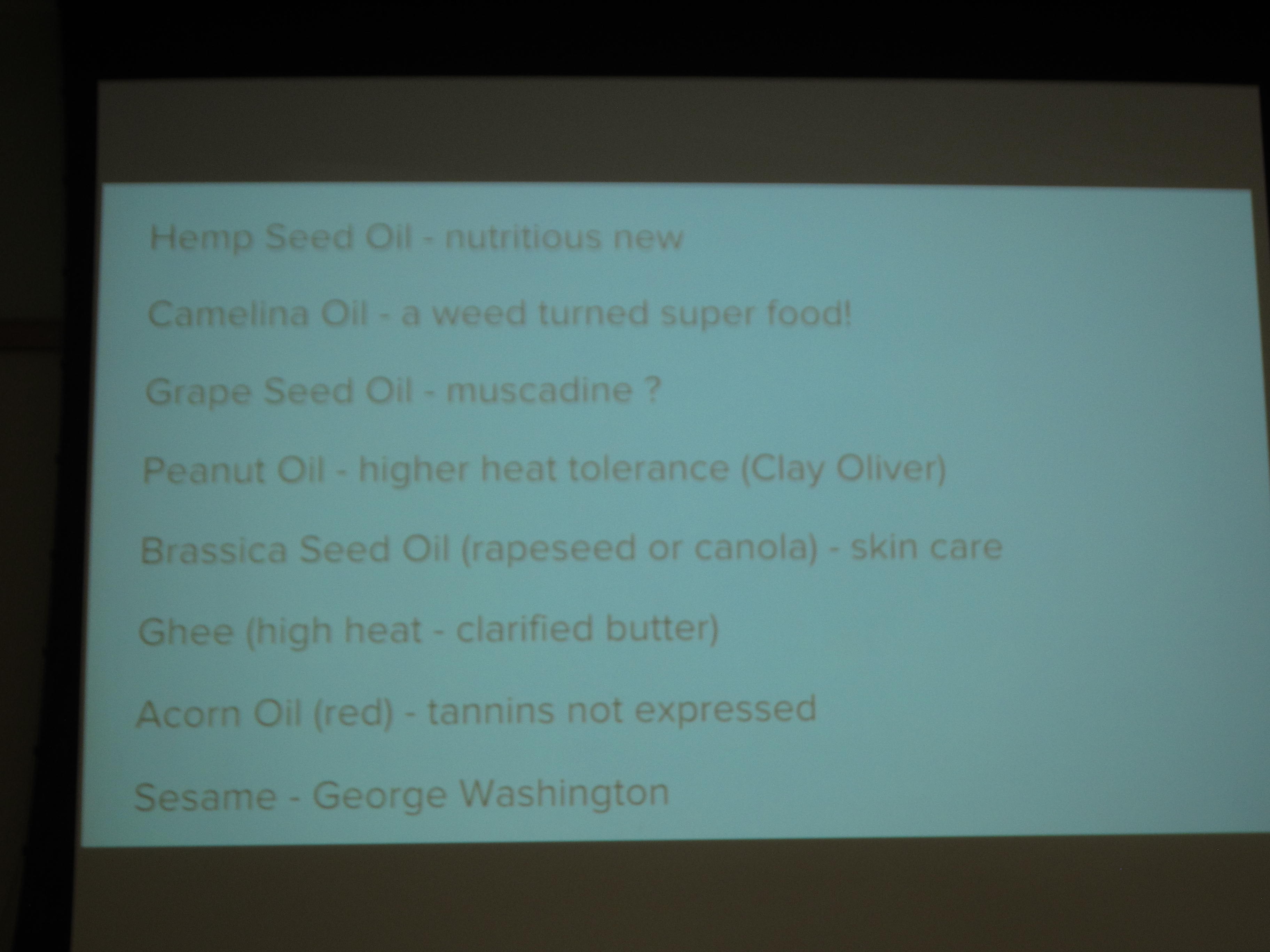
The great think about pressing seeds for oil is that they don’t have to be thoroughly cleaned (or winnowed) before pressing. All the chaff comes out in the press cake. Plus, seeds are shelf-stable so you can store seeds in a cool, dark and dry location until you need soil. Press only enough to last a week or two. Fresh all the time. I see an oil press in my future.
Heirloom Culinary History – with Michael Twitty
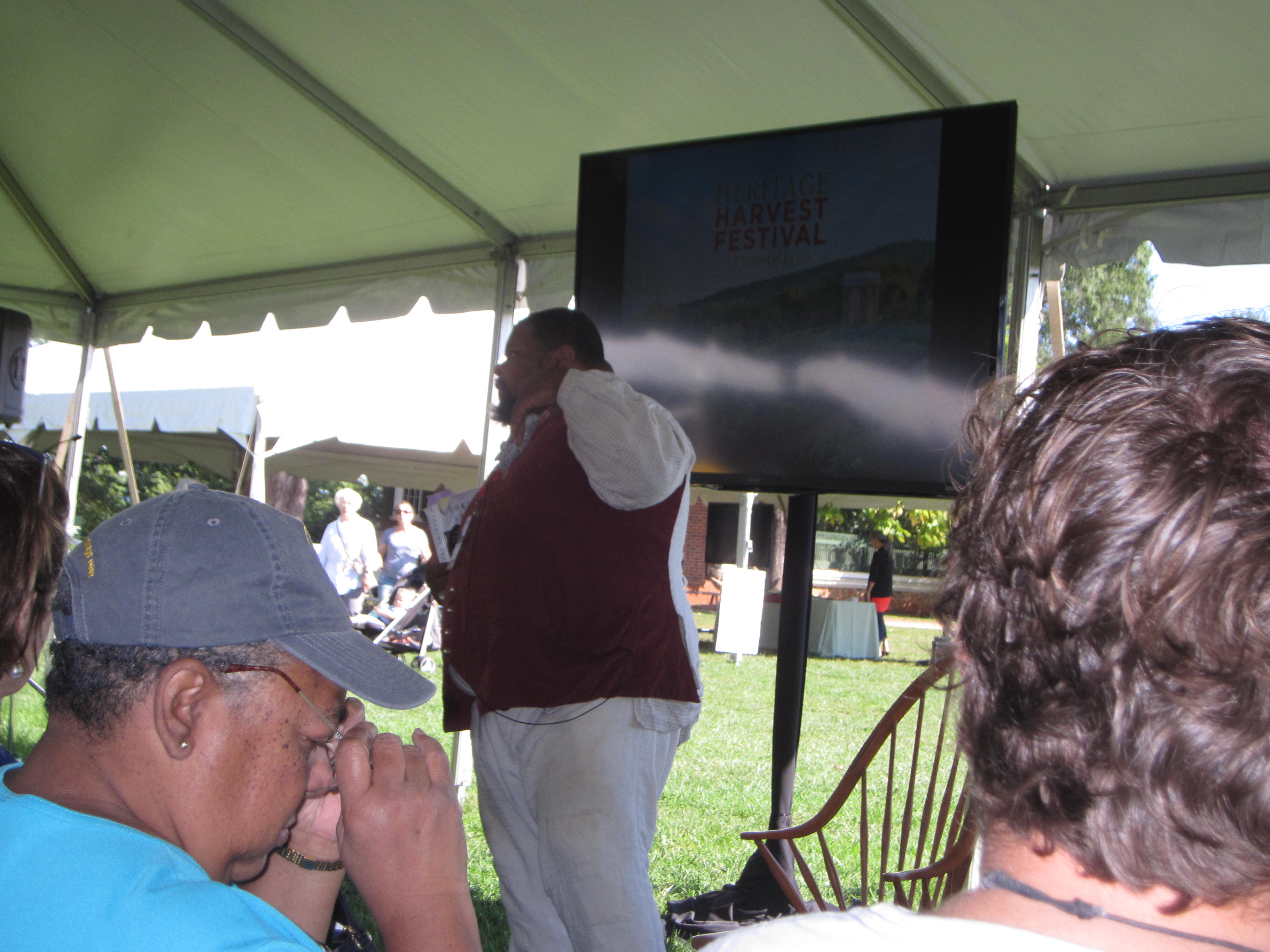
Michael Twitty, author of The Cooking Gene and founder of Antibellum Chef, is a forced to be reckoned with. He has spent his life researching food culture of the American south. Years back, he notoriously went after Paula Dean for not acknowledging her behind-the-scenes African American chefs who create her recipes.
In his words, “The responsible exploration of the Southern food heritage demands that the cooks of colonial, federal era, and antebellum kitchens and enslaved people’s cabins be honored for their unique role in giving the Southland her mother cuisine.”
We in the audience were in tears (as evidenced by the woman in front of me in the photo above dabbing her eyes) as he pointed out, “Isn’t it amazing that we can all sit here together under this tent today? Look around…that women and men can sit together here…that all of us from every nationality, creed, and color can sit side by side today.” Let me remind you we were in Charlottesville, VA. Virginia heritage cooking is a blend of what came out of the gardens of African Americans, immigrant gentlemen farmers, French-trained enslaved chefs, and local Southern culture. We celebrate it by growing heritage varieties from Africa, France, Native American traditions and more. He left us with plenty of food for thought.
Growing Sweet Potato Slips -with Pam Dawling

Pam Dawling is the Garden Manager of the Twin Oaks Intentional Community farm, and author of Sustainable Market Farming. The 100 community members at Twin Oaks grow hundreds of sweet potatoes from home-grown slips each year from May to November.
Pam shared 3 techniques for starting sweet potato slips from scratch. Since this blog post is already long enough, I’ll just say this: her entire presentation, as well as a blog post sharing her techniques can be found here. It’s impressive. Take a look.
In Defense of Okra – with Chris Smith…again
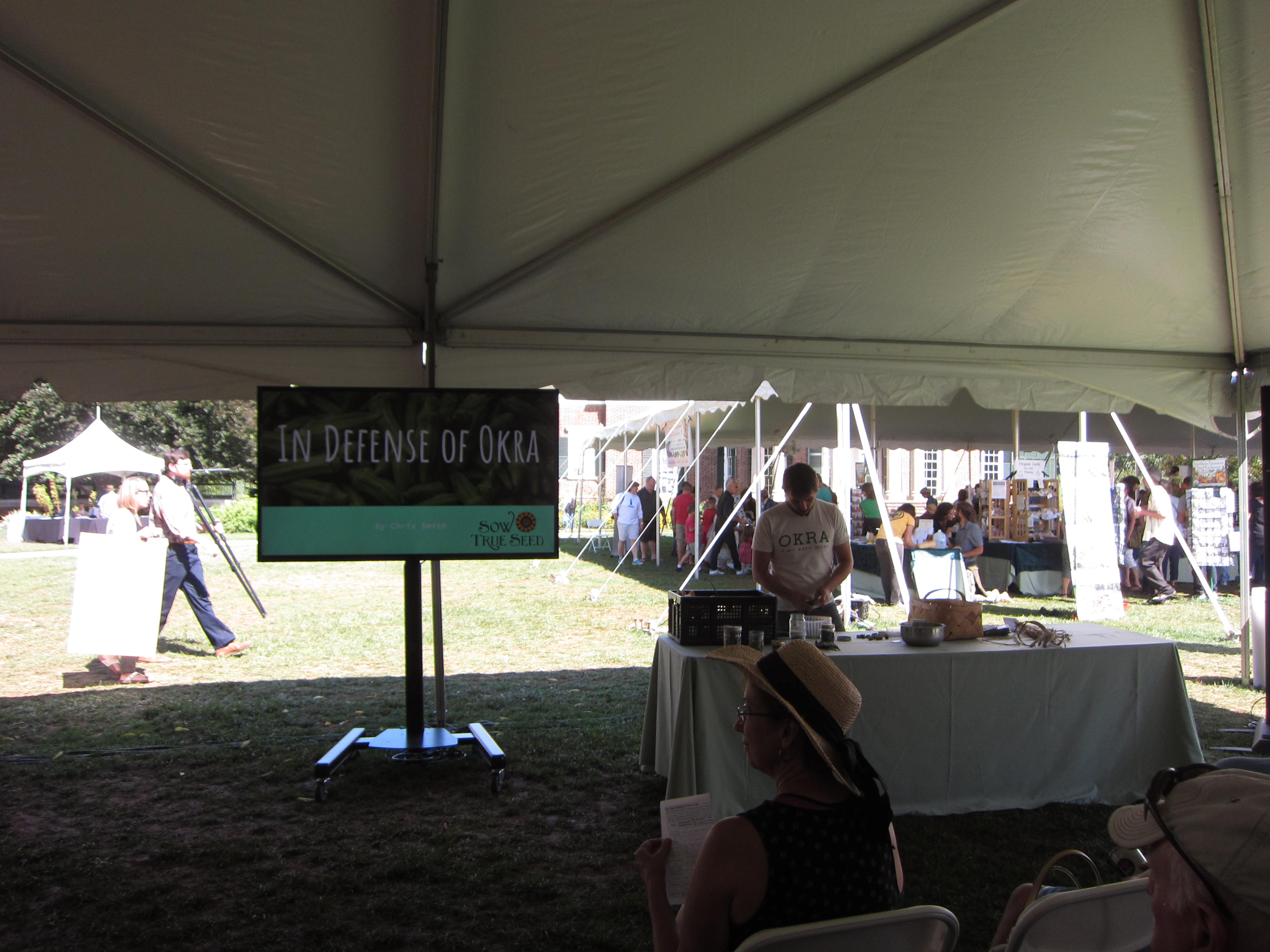
On Day 2, Chris Smith returned touting the benefits of okra. He shared ways to use all the parts of the plant, as well as options for using the fruits even after they have become woody and fibrous. Chris is British and can’t grow okra where he grew up, so he adopted the crop when he came to America, since none of us will.
Uses for Okra:
Seeds – they can be pressed for oil (see above), or eaten raw when the pods have become to woody. Seeds can be roasted into a coffee substitute, or made into a curd like tofu. They can also be ground into a flour for gluten free crackers or pie crust.
Stalks – fibers can be processed and woven into baskets, cordage or paper. It is used as an oyster mushroom growing medium once pasteurized and soaked. Yea, he did that.
Flowers – use like zucchini flowers. Stuff them with cheese and fry them. Harvesting flowers slows the growth of the plant if you can’t keep up with the pod harvest.
Leaves – yes, these are edible too. Can be dried and powdered to use for a thickening effect in foods. Can be cooked or eaten raw in salads and can be grown as a microgreen. The younger the leaves, the more tender they are. Throw leaves into smoothies, use for wraps or make chips.
Woody pods – steam or bake woody pods then eat the seeds like edamame. Ferment or pickle the tougher pods.
Fresh pods – can be sliced and fried in a cast iron pan to char a little. Grilling caramelizes the sugars, dehydrate them whole, coated with a spice blend for a tasty snack.
It just goes to show that everything has a purpose if you’re willing to explore the possibilities. Try some of these interesting ideas from Monticello this coming year in your garden.

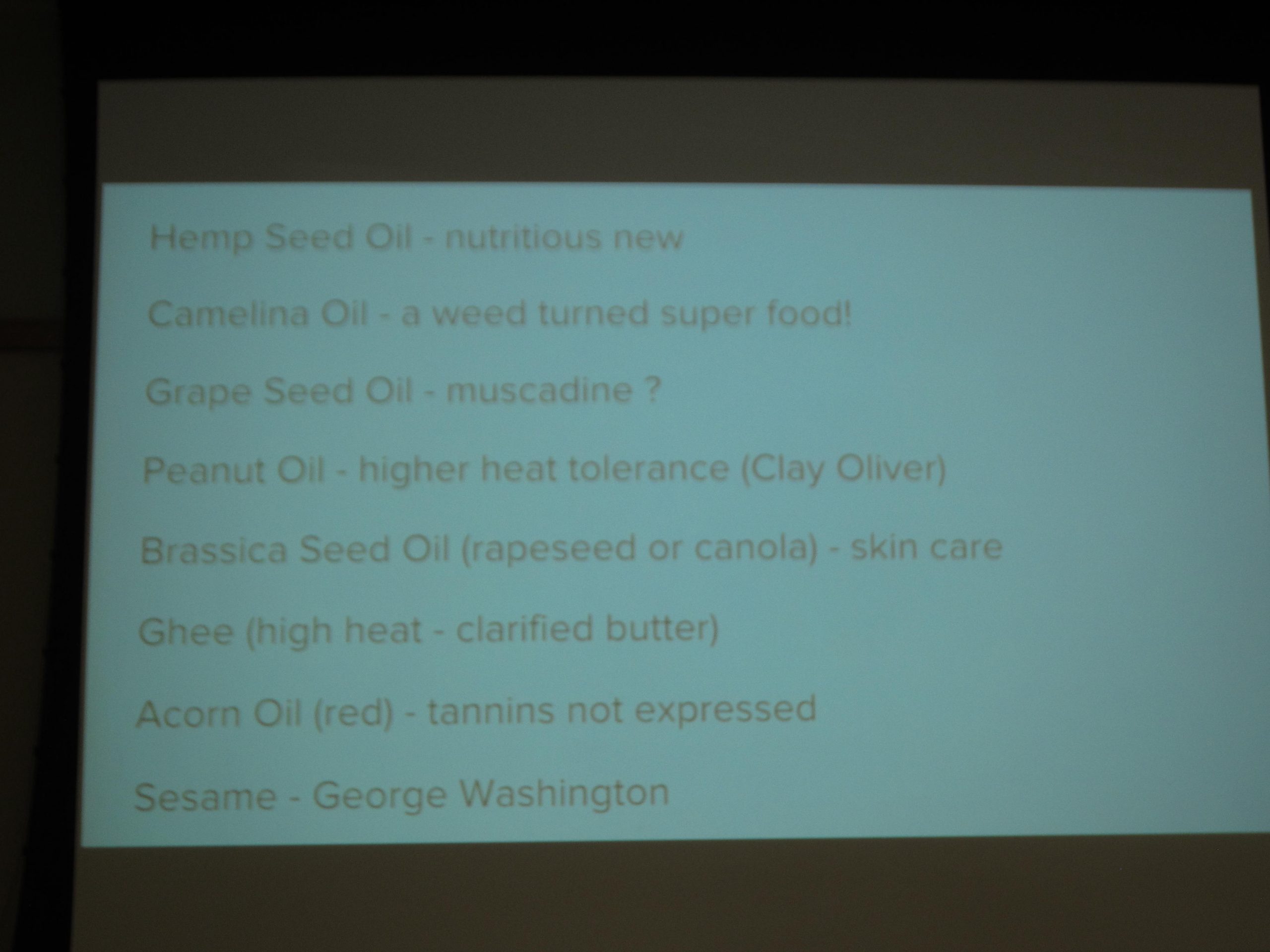
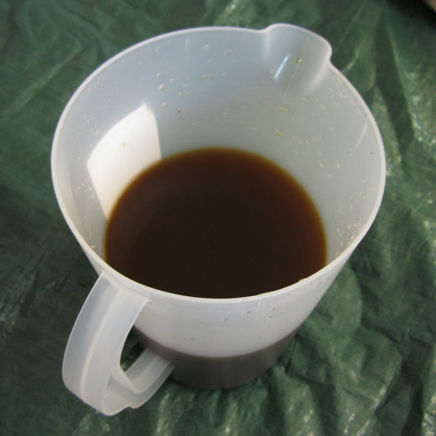
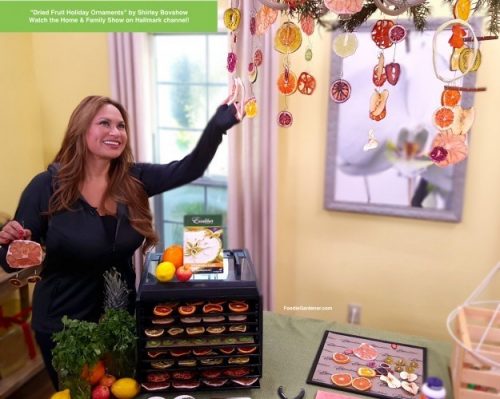
Thanks for this write up! It was great meeting you.
Likewise, Chris. Your classes were both fascinating and fun.